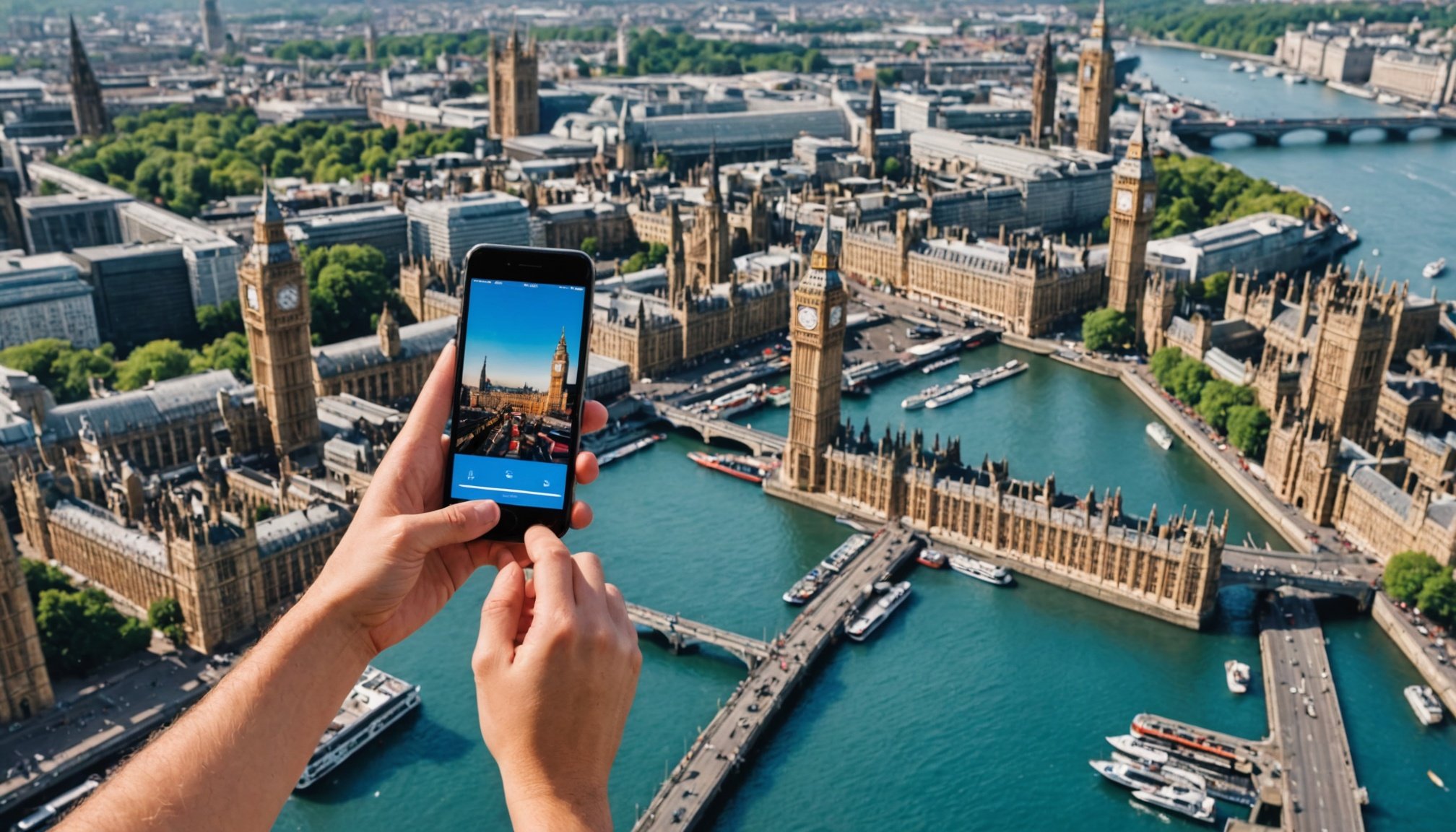Unlocking the Power of Influencer Marketing: A Comprehensive Blueprint for UK Tourism Boards to Attract Fresh Visitors
In the ever-evolving landscape of tourism marketing, influencer marketing has emerged as a potent tool for attracting new visitors and revitalizing destination brands. For UK tourism boards, leveraging influencer marketing can be a game-changer, but it requires a well-thought-out strategy and execution. Here’s a detailed blueprint to help you unlock the full potential of influencer marketing.
Understanding the Landscape of Influencer Marketing
Before diving into the specifics, it’s crucial to understand the current state of influencer marketing. This sector has grown exponentially, with platforms like Reach Influencers and Travel Massive connecting businesses with a vast array of influencers across various demographics and niches[2][4].
Also to see : Unlocking tomorrow: how uk tourism boards are harnessing virtual reality to transform destination marketing
“Influencer marketing is no longer a niche strategy; it’s a mainstream approach that can significantly impact your brand’s visibility and appeal,” notes Michael from Parador, a specialist in search marketing for the travel industry[2].
Identifying the Right Influencers
The first step in any successful influencer marketing campaign is identifying the right influencers. Here are some key considerations:
Have you seen this : Elevating cybersecurity standards: an in-depth playbook for financial services in the uk
Niche and Relevance
- Look for influencers who specialize in travel, adventure, or lifestyle content that aligns with your destination’s unique selling points.
- For example, if your destination is known for its outdoor activities, partnering with influencers like Allie Butler, who has a strong following in the outdoor and travel niches, could be highly effective[4].
Reach and Engagement
- While large followings can be impressive, engagement rates are often more critical. Micro- and nano-influencers can offer higher engagement rates and a more targeted audience.
- “Micro-influencers have a more personal connection with their followers, which can lead to higher conversion rates,” explains a marketing expert from Acorn Tourism Consulting[5].
Authenticity and Trust
- Choose influencers who have a genuine interest in your destination and can authentically promote it.
- User-generated content (UGC) is a powerful tool; it builds trust and provides potential visitors with an authentic view of what they can experience. For instance, Tourism New Zealand’s “If You Seek” campaign heavily relies on UGC to promote the country’s year-round attractions[3].
Building a Comprehensive Strategy
A successful influencer marketing campaign requires a comprehensive strategy that integrates multiple elements.
Cross-Channel Approach
- Use a cross-channel approach to reach the widest possible audience. This includes social media platforms like Instagram, TikTok, and YouTube, as well as blogs and websites.
- “A multi-channel strategy ensures that your message is seen by different segments of your target audience,” advises a marketing team member from North Wales Tourism[1].
Content Creation and Collaboration
- Collaborate with influencers to create high-quality, engaging content. This can include videos, photos, blog posts, and social media stories.
- For example, Videreo’s technology allows influencers to make their video content searchable on a map, extending their influence beyond a single post and driving more targeted traffic to specific locations[2].
Campaigns and Promotions
- Design specific campaigns and promotions that align with your marketing goals. This could include seasonal promotions, special events, or package deals.
- Tourism Ireland’s “Wild Atlantic Way” campaign is a great example, where targeted video and digital campaigns, along with a global PR push, were used to celebrate the 10th anniversary of the Wild Atlantic Way[3].
Leveraging Technology and Tools
Technology plays a crucial role in the success of any influencer marketing campaign.
Influencer Marketing Platforms
- Utilize platforms like Reach Influencers to discover, manage, and collaborate with influencers efficiently.
- These platforms streamline the process of finding the right influencers, setting up campaigns, and managing payments[4].
SEO and Content Optimization
- Ensure that the content created by influencers is optimized for search engines. This can significantly boost your website’s visibility and drive organic traffic.
- Parador’s SEO audits can help identify key issues and opportunities for improvement, guiding you towards better visibility and traffic growth[2].
Measuring Success and ROI
Measuring the success of an influencer marketing campaign is essential to understand its impact and make necessary adjustments.
Key Metrics
- Track engagement rates, follower growth, website traffic, and conversion rates.
- Use tools like Google Analytics to monitor the traffic generated from influencer content and measure the conversion rate.
Social Proof
- Collect testimonials and reviews from visitors who were influenced by the campaign.
- Showcase this social proof on your website and marketing materials to build credibility and trust with potential visitors.
Best Practices and Case Studies
Here are some best practices and case studies to illustrate the effectiveness of influencer marketing in tourism.
User-Generated Content
- Encourage past visitors to share their experiences on social media using specific hashtags.
- For instance, the Los Angeles Tourism & Convention Board’s “Now Playing” campaign created a dedicated microsite and encouraged UGC to boost engagement and authenticity[3].
Diversity and Inclusion
- Ensure that your influencer marketing campaigns reflect the diversity and inclusion of your destination.
- “Diversity and inclusion are not just buzzwords; they are essential for creating a welcoming and authentic brand image,” notes a director from Acorn Tourism Consulting[5].
Hybrid Working and Mental Health
- Consider the well-being of your team and influencers, especially in the context of hybrid working and mental health.
- “Taking care of our team’s mental health is crucial for maintaining creativity and productivity in our marketing efforts,” says a member of the marketing team at North Wales Tourism[1].
Practical Insights and Actionable Advice
Here are some practical insights and actionable advice to help you get started:
Start Small
- Begin with a small pilot campaign to test the waters and understand what works best for your destination.
- “Starting small allows you to refine your strategy before scaling up,” advises a marketing expert.
Build Relationships
- Foster long-term relationships with influencers rather than one-off collaborations.
- “Building trust and rapport with influencers can lead to more authentic and sustained promotions,” explains an influencer marketing specialist.
Stay Current
- Keep up with the latest trends and technologies in the marketing industry.
- “Staying current is key to staying ahead in the competitive world of tourism marketing,” notes a director from Acorn Tourism Consulting[5].
Detailed Checklist for Launching an Influencer Marketing Campaign
Here’s a detailed checklist to help you launch a successful influencer marketing campaign:
-
Identify Your Goals
-
Define what you want to achieve through the campaign (e.g., increase website traffic, boost bookings).
-
Set clear, measurable objectives.
-
Choose the Right Influencers
-
Research and select influencers who align with your brand and target audience.
-
Evaluate their reach, engagement, and content quality.
-
Develop a Content Strategy
-
Collaborate with influencers to create engaging, high-quality content.
-
Ensure content is optimized for SEO and aligns with your brand messaging.
-
Execute the Campaign
-
Launch the campaign across multiple channels (social media, blogs, websites).
-
Monitor and adjust the campaign based on real-time data and feedback.
-
Measure and Evaluate
-
Track key metrics such as engagement rates, website traffic, and conversion rates.
-
Collect social proof and testimonials to build credibility.
-
Optimize and Scale
-
Analyze the campaign’s performance and make necessary adjustments.
-
Scale the campaign based on its success and feedback.
Comparative Table: Influencer Marketing Platforms
Here is a comparative table of some popular influencer marketing platforms to help you choose the best fit for your needs:
| Platform | Key Features | Target Audience | Pricing |
|---|---|---|---|
| Reach Influencers | Discover and manage influencers, campaign management, direct payment | Businesses, Influencers | Varies based on services |
| Travel Massive | Network of 80,000+ members, job listings, classified ads | Travel professionals | Free to join |
| Parador | SEO audits, search marketing for travel industry | Travel agencies, DMOs | Custom quotes |
| Videreo | Video-first influencer platform, map-based content search | Video influencers | Custom quotes |
Quotes and Insights from Industry Experts
Here are some quotes and insights from industry experts that highlight the importance and effectiveness of influencer marketing in tourism:
-
“Influencer marketing is a powerful tool for reaching new audiences and creating authentic brand experiences. It’s about building relationships and trust with your influencers and your audience,” says a marketing team member from North Wales Tourism[1].
-
“The key to a successful influencer marketing campaign is to ensure that the content is high-quality, engaging, and authentic. It’s not just about the numbers; it’s about the story you tell,” notes a director from Acorn Tourism Consulting[5].
-
“Technology has revolutionized the way we approach influencer marketing. From SEO optimization to social media analytics, the tools available today make it easier than ever to measure and improve your campaigns,” explains Michael from Parador[2].
Influencer marketing is a dynamic and effective strategy for UK tourism boards looking to attract fresh visitors. By understanding the landscape, identifying the right influencers, building a comprehensive strategy, leveraging technology, and measuring success, you can unlock the full potential of this marketing approach.
Remember, the best campaigns are those that are authentic, engaging, and well-measured. As you embark on this journey, keep in mind the importance of diversity, inclusion, and the well-being of your team and influencers. With the right approach, influencer marketing can be a game-changer for your destination, driving growth, engagement, and a lasting impact on your target audience.











